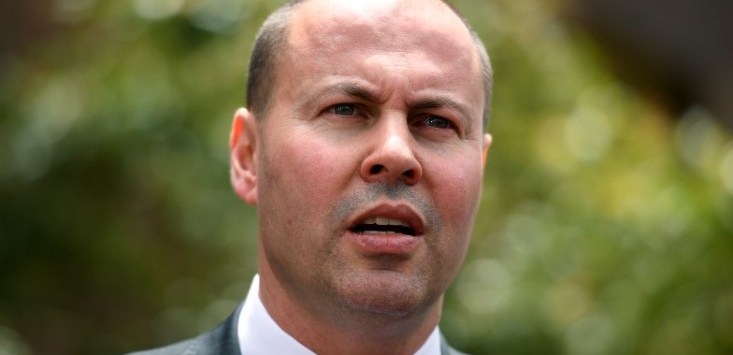
Treasurer Josh Frydenberg.
The Morrison government has delayed a decision about whether to push back a scheduled increase in the superannuation guarantee until mid-2021, in response to the economic fallout of the pandemic and a long-awaited retirement review.
The Retirement Income Review, released on Friday, shared findings about how Australians can fund their retirements using voluntary savings and reverse mortgages, rather than solely relying on superannuation.
The superannuation guarantee is scheduled to increase from 9.5% to 10% in July 2021, before further increasing to 12% by 2025.
However, Prime Minister Scott Morrison has indicated he will now postpone making a decision about the planned increase to the super guarantee until May 2021 due to the economic fallout of the pandemic.
“A rate of compulsory superannuation that would result in people having an increase in their living standards in retirement may involve an unacceptable reduction in living standards prior to retirement, particularly for lower-income earners,” an extract of the report stated.
Treasurer Josh Frydenberg said in a statement proposed super reforms would benefit Australians by $17.9 billion over the next 20 years in the form of “lower fees, improved returns and a streamlined superannuation system”.
“Importantly, the report also reaffirms the need to simplify and enhance the efficiency of the superannuation system and lift home-ownership rates as a driver of higher incomes in retirement,” Frydenberg said.
The review, compiled by former Treasury official Michael Callaghan, has been with the government since July, however, its public release was postponed until November 20.
Council of Small Business Organisations Australia CEO Peter Strong says increasing the super guarantee now “is not a win” for workers given the effect higher super payments will have on small businesses.
“It’s the employees that will pay for this. Wages won’t see a decrease, what they’ll see is less hours and less jobs.”
“It’s not a win for the workers,” Strong says.
Strong is supportive of the government’s push to find alternative ways for Australians to fund their retirements, and while he thinks accessing the equity of property using reverse mortgages is worth considering, he says it first needs to be thoroughly considered.
“Reverse mortgages are a good idea, but let’s make sure it’s fit for purpose,” Strong says.
Asked whether the government should commit to the superannuation guarantee increase to 12%, Strong says right now, it isn’t practical.
“In the future, if the economy does wonderful things, then the government can revisit the increases,” Strong says.
On the other side of the superannuation discussion are Labor and the trade unions.
Australian Council of Trade Unions president Michele O’Neil told The Age on Thursday a possible decision to delay the increase to the super guarantee would “rob millions of workers of the best and healthiest years of their retirement”.
Labor’s Shadow Assistant Treasurer Stephen Jones said Frydenberg needed to remain committed to the scheduled increase to 10%, reported the ABC on Thursday.
“The government has to stick to the promise that it made to the Australian people before the last election … this is a structural change to ensure Australians over multiple generations are set up with the right level of retirement savings,” Jones said.
Handpicked for you

Budget 2020: The pros and cons of Frydenberg’s superannuation reforms



COMMENTS
SmartCompany is committed to hosting lively discussions. Help us keep the conversation useful, interesting and welcoming. We aim to publish comments quickly in the interest of promoting robust conversation, but we’re a small team and we deploy filters to protect against legal risk. Occasionally your comment may be held up while it is being reviewed, but we’re working as fast as we can to keep the conversation rolling.
The SmartCompany comment section is members-only content. Please subscribe to leave a comment.
The SmartCompany comment section is members-only content. Please login to leave a comment.